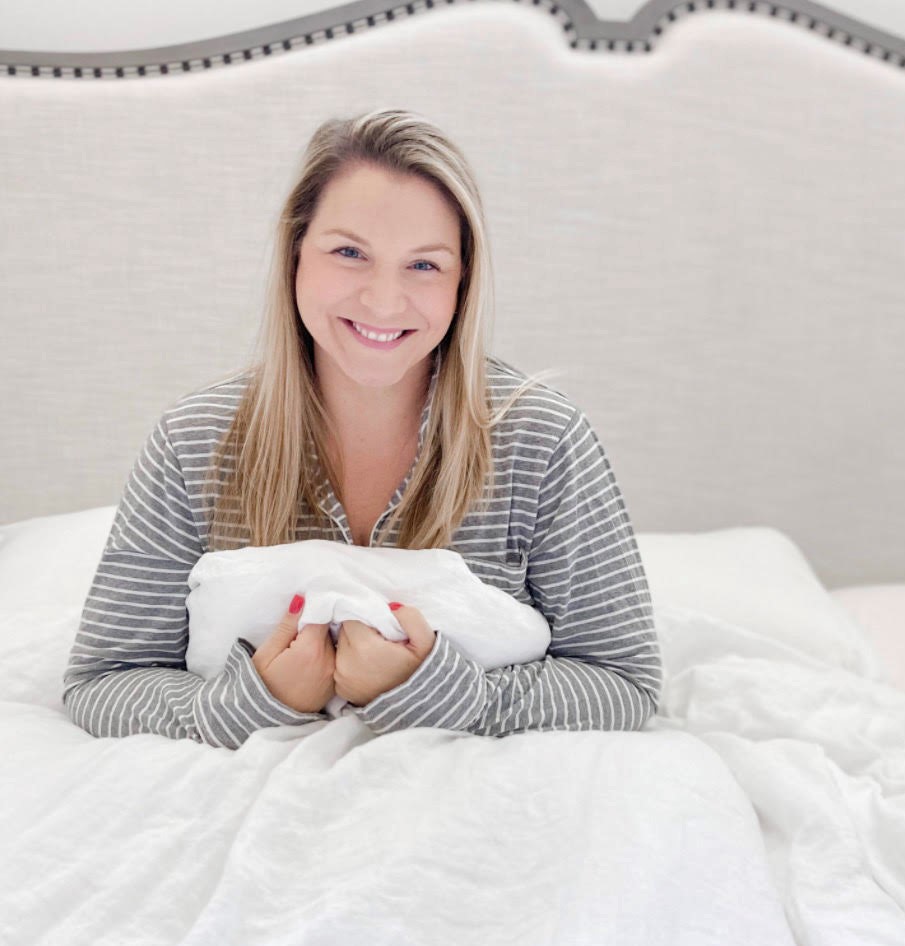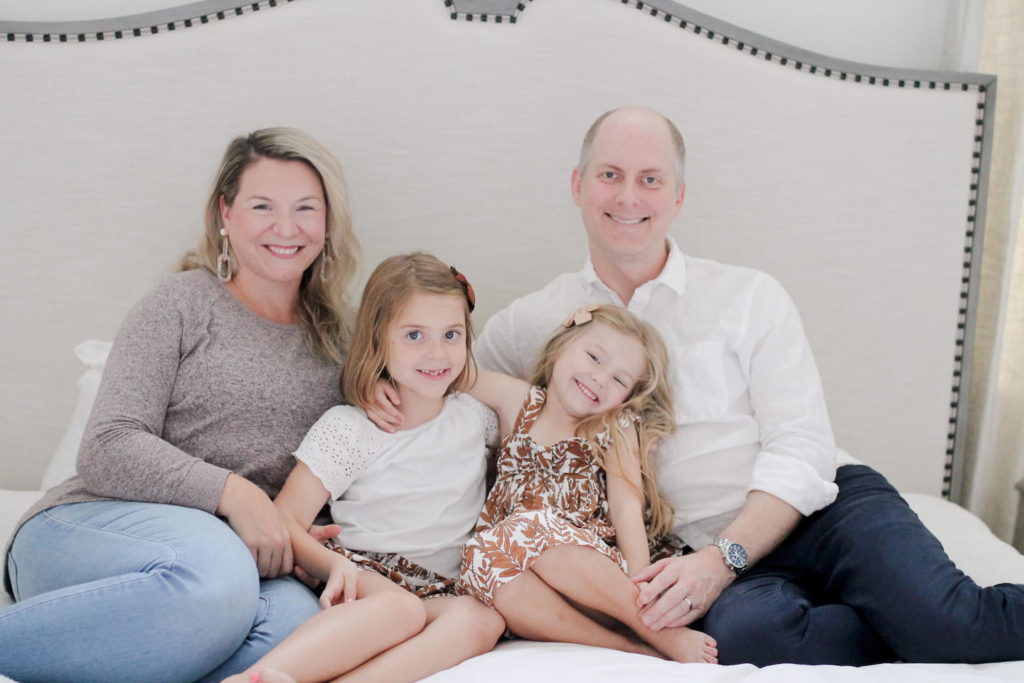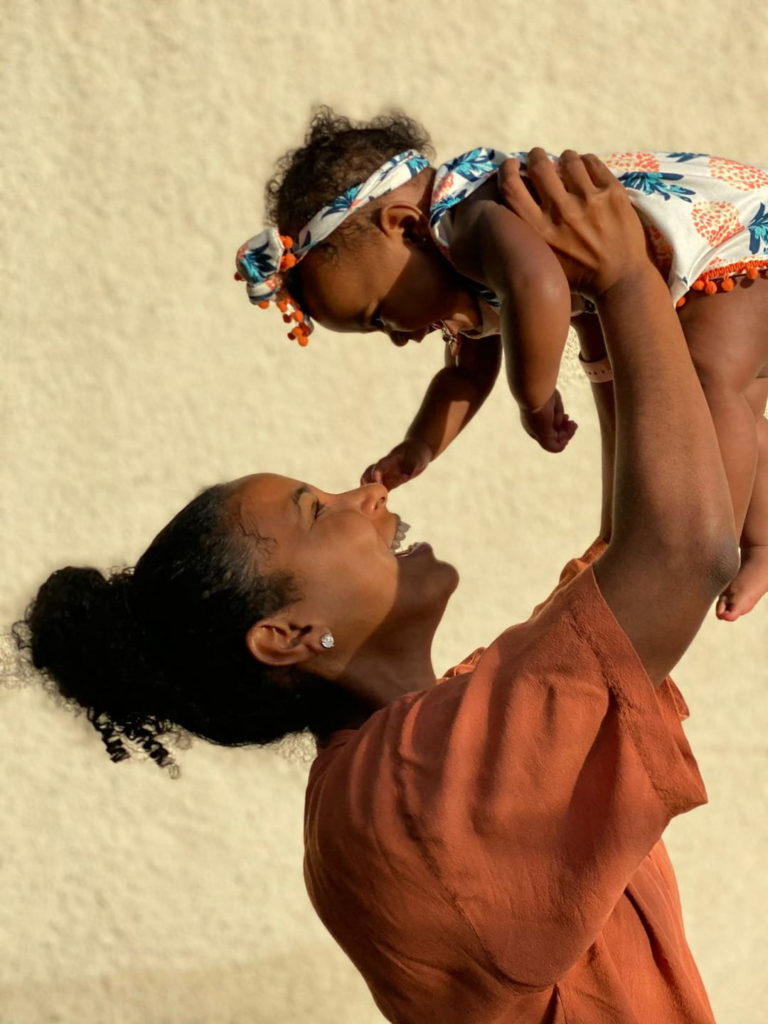
It’s 3 a.m., and while the world is sleeping, you’re pacing back and forth with your crying baby, exhausting all options to get him or her to sleep. In another reality, you and your little one could be getting the sweetest sleep with the help of a ‘sleep fairy godmother’, and yes, they actually exist in the form of paediatric sleep consultants like Kristin Giefer.
A mother of two, Giefer was determined not to forgo her “good days of sleep,” as is often the narrative of becoming a new mother, which led to her doing ample research and discovering the world of sleep trainers. Through the help of a sleep trainer (and a few self-help books), Giefer cultivated a healthy sleep cycle for her firstborn, Emma, and, ultimately, herself. Onlooking new parents were impressed and asked her for help, which led to her seeking a certification from the QC Career School. The venture wasn’t an oddity for Giefer, who grew up in Jamaica, where she learnt the importance of sleep.
“When people were sleeping it was respected, and it was like, ‘So and so is sleeping, be very quiet,’” she said.
Now based in New Orleans, Giefer has seen how sleeping is equated to being lazy in America. Her role as a sleep consultant sees her supporting parents to maintain healthy sleep cycles for themselves and their baby while having a sense of control over their day.

“They’re not there pulling their hair out, and not standing there at 3 a.m. with a crying baby in their arms wondering what to do next, because they have the tools and the notes, and they know what to do when situations like that arise, as they have some structure in their life,” she said. “It’s very chaotic becoming a mother or parent for the first time; [the] second time, third time, it’s all a different story. So if I can provide some structure and comfort to the parent, that’s ultimately why I do this.”
REASSURING YOUR CHILD

She aces this through customised sleep plans and live coaching, following a thorough consultation with the parents. She recommends sleep training when the baby is at least 16 weeks old (gestational), but acknowledges that sleep training isn’t for all babies. As for how the process works, “It all depends on what the parent can manage. The true lesson in sleep training is that you are reassuring your child, you’re not abandoning your child nor coddling them, but right in the middle … . The lesson is, you are left alone, you are safe, you are happy, you are fed. Mommy, daddy, whoever the caregiver is, will always come back, and you come back intermittently to check in, but you don’t give them the crutch.”
Sleep crutches include pacifiers; battery-operated products, like music or devices; and human soothing props, like rocking or letting the baby sleep on you.
Kandi King, owner of Karnival by Kandi and director at Xaymaca International, recently employed the services of Giefer when her daughter Korus was around seven months old. King told Flair that she needed peace of mind around sleep, and has received that and more through sleep training her now 10-month-old.
“It was difficult, yes, but a few challenging days for a lifetime of good sleep? I’ll take it,” King said. “She no longer wakes up multiple times throughout the night, and neither do I. This means once she goes to sleep, I am comfortable enough to get work done, work out, relax, decompress in whatever ways, which has been beneficial for my mental health. She falls asleep peacefully on her own without any help from parents or caregivers, so the pressure is completely off of us at bedtimes and naptime. It has given me the peace of mind I was looking for, and I highly recommend it to other parents, mothers, caregivers who struggle in the sleep department.
- Kristin Giefer may be contacted through her website, www.madeleinesandmathfacts.com.

